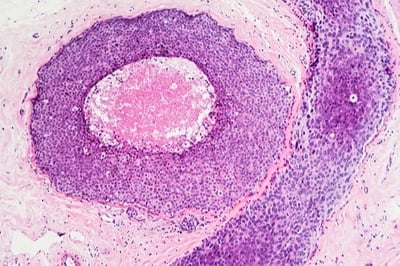Categories Tumor Testing



Relevance: High
Most relevant for: Women with advanced ovarian cancer whose tumor has a BRCA mutation or a type of tumor marker called homologous recombination deficiency (HRD)
Update: FDA approves the PARP inhibitor olaparib (Lynparza) in combination with bevacizumab (Avastin) as maintenance therapy for some women with advanced ovarian cancer
The FDA has approved the first drug combination to be used as a first-line maintenance therapy for some women with advanced ovarian cancer. (7/7/2020)
READ MORE ›


Relevance: Medium-High
Most relevant for: People with metastatic breast cancer with an inherited mutation in PALB2 or tumor with a BRCA mutation
Study: Promising research using a PARP inhibitor to treat metastatic breast cancer in people with an inherited PALB2 mutation or a tumor mutation in BRCA1 or BRCA2
Early results of a small study showed that women with metastatic breast cancer and an inherited mutation in PALB2 or an acquired tumor mutation in BRCA1 or BRCA2 benefitted from the PARP inhibitor olaparib (Lynparza). (6/18/20)
READ MORE ›


Relevance: High
Most relevant for: People diagnosed with early stage breast cancer
Study: Declining use of chemotherapy for early-stage breast cancer: examining oncologist recommendations
A new study shows that chemotherapy use for early-stage, node-positive and node-negative breast cancers declined from 2013 to 2015. It also reports that oncologists’ recommendations are influenced to differing degrees by patient preferences and tumor test results, despite unchanging health care guidelines. (8/21/18)
READ MORE ›


Relevance: Medium-High
Most relevant for: People with node-negative, ER-positive breast cancer
Study: Some women with early-stage breast cancer forego chemotherapy
A research study named the “Trial Assigning Individualized Options for Treatment” (TAILORx) asked whether chemotherapy is beneficial for women who have mid-range Oncotype DX tumor recurrence scores. This trial — the largest breast cancer treatment trial ever conducted— showed that endocrine therapy alone was as effective as endocrine therapy plus chemotherapy in women with certain types of early-stage breast cancer. The results of this trial are expected to be immediately practice changing (7/20/18)
READ MORE ›


Relevance: Medium-High
Most relevant for: Women diagnosed with ER-positive, Her2-negative early-stage breast cancer with 0-3 positive nodes
Guideline: Can MammaPrint guide treatment decisions?
The American Society of Clinical Oncology (ASCO) updated its guidelines for MammaPrint, a genomic tumor test that guides treatment decisions for patients with early-stage invasive breast cancer. The update was based on results from the MINDACT study (11/16/17).
READ MORE ›


Relevance: Medium-Low
Most relevant for: Patients with ER+ breast cancer
Study: Common genetic change found in some tumors of patients who relapse after aromatase inhibitor treatment
About one in five people diagnosed with estrogen receptor-positive (ER+) breast cancer relapse within 10 years after treatment. Researchers and health care providers do not know why this happens. This early research aims to identify a genetic change in the tumor that may cause relapse, but more studies are needed to understand why patients relapse and who is at risk. (5/3/17)
READ MORE ›


Relevance: Medium
Most relevant for: People diagnosed with breast cancer that is "high-grade" or aggressive
Study: Cellular diversity in tumors may predict survival for some types of breast cancer
Some tumors are made up of many different types of cells, while others contain generally the same cell type. This study found that among people with high-grade breast cancer, those who have tumors made up of many different cell types have a lower 10-year survival rate than people with tumors containing only a single type of cells. This research is an early step towards developing a new test that can help physicians identify cancers that need more aggressive treatment, but more research is needed before it is ready for clinical use. (4/26/16)
READ MORE ›